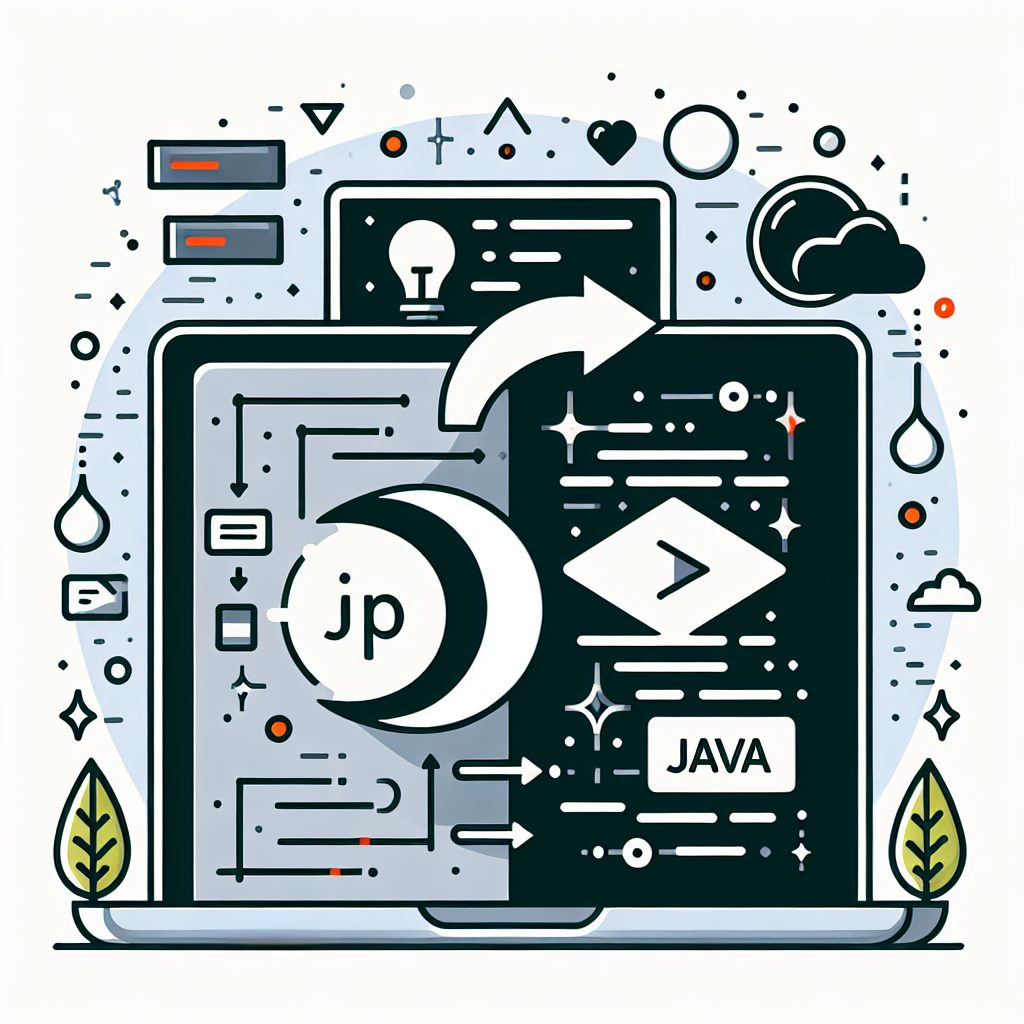Convert PHP to Java Instantly - Easy & Efficient Tool
Effortlessly convert PHP code to Java with our powerful tool. Streamline your development process and enhance efficiency today. Try it for free!
Source Code
Converted Code
Output will appear here...
Transform your PHP code into Java seamlessly with our PHP to Java conversion tool. Ideal for developers looking to enhance cross-platform compatibility and leverage Javas robust performance, this tool simplifies the transition process, ensuring efficient and accurate code translation. Enhance your projects scalability and maintainability with a few clicks, while benefiting from streamlined workflows and reduced development time.

PHP to Java Conversion Tool Link to this section #
The PHP to Java conversion tool is designed to seamlessly translate PHP code into Java, catering to developers looking to transition projects or integrate PHP functionalities within Java applications. This tool is particularly useful for those aiming to leverage Java's performance and scalability without rewriting code from scratch.
Key Features: Link to this section #
- Automated Translation: Converts PHP syntax to Java, ensuring compatibility with minimal manual adjustments.
- Syntax Highlighting: Enhances readability by highlighting key syntax differences between PHP and Java.
- Error Detection: Identifies potential translation errors, such as incompatible functions or data types, and suggests alternatives.
Why Use PHP to Java Converter? Link to this section #
- Efficiency: Reduces the time and effort required for manual code conversion.
- Accuracy: Maintains the integrity of the original code logic during translation.
- Scalability: Facilitates the integration of PHP modules into Java-based enterprise applications.
Code Conversion Example Link to this section #
Below is a simple example demonstrating the conversion of a PHP function to its Java equivalent:
PHP Code:
function addNumbers($a, $b) {
return $a + $b;
}
Java Equivalent:
public class Calculator {
public int addNumbers(int a, int b) {
return a + b;
}
}
Considerations Link to this section #
- Data Types: Be aware of differences in data type handling between PHP and Java. For instance, PHP is loosely typed, whereas Java requires explicit type declarations.
- Libraries and Frameworks: Not all PHP libraries have direct Java counterparts. Research alternative libraries or consider custom implementations.
- Community Support: Leverage forums and communities like Stack Overflow for additional guidance and troubleshooting.
This conversion tool serves as an essential resource for developers aiming to bridge the gap between PHP's simplicity and Java's robustness, ensuring a smooth and efficient transition.
Frequently Asked Questions
What are the key differences between PHP and Java?
PHP is a server-side scripting language primarily used for web development, while Java is a versatile, object-oriented programming language used for building applications across various platforms. PHP is generally easier to learn and faster for web development, whereas Java offers more robust and scalable solutions suitable for complex, large-scale applications.
Can I convert PHP code to Java automatically?
There is no direct tool to automatically convert PHP code to Java. Both languages have different paradigms and libraries, making automated conversion challenging. It's best to rewrite the code manually while taking advantage of Java's features and ecosystem. However, you can use various tools and libraries to assist in the transition, focusing on replicating functionality rather than direct translation.
Is it better to use PHP or Java for web development?
The choice between PHP and Java for web development depends on the project's requirements. PHP is often preferred for small to medium-sized projects due to its simplicity and strong support for web development. Java is suitable for larger, enterprise-level applications where scalability, security, and performance are critical. Consider factors like project complexity, team expertise, and long-term maintenance when making a decision.